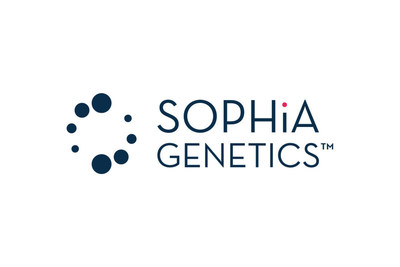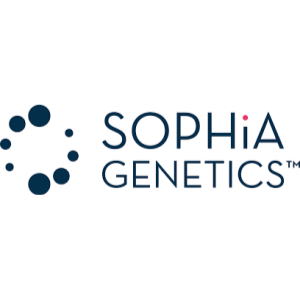SOPHiA GENETICS and The French Kidney Cancer Research Network (UroCCR) Publish Results from Multiyear Collaboration
New Multimodal Algorithm Highlights Predictive Benefit Of Artificial Intelligence (AI) for Cancer Research
UroCCR is one of the world's largest collaborative kidney cancer networks with 51 multidisciplinary clinical teams across
The UroCCR database provided multimodal, real-world data, including radiological, clinical, and biological data from more than 3,300 patients across
"The volume and complexity of available health data continues to increase, and while this can assist in personalized diagnostics and treatment, it is most effective when paired with AI," said Thierry Colin, VP, Multimodal Research and Development, SOPHiA GENETICS. "Our work with UroCCR over the last three years has significantly advanced its research of RCC and shown the power of AI to provide insights from real-world multimodal data. We are extremely pleased with the findings from this study and look forward to continued collaboration with UroCCR."
SOPHiA GENETICS' technology and global decentralized network are designed to break data silos and empower researchers with data-driven insights to drive the use of precision medicine. The study from UroCCR and SOPHiA GENETICS shows that an AI-based prediction model has the potential to support clinical treatment decision-making and provide an indication of which patients may potentially benefit from adjuvant systemic therapy, versus those that can sustain with surveillance.
"At UroCCR, our research is centered on the idea that a shared database helps facilitate and expand the use of precision medicine for patients facing kidney cancer," said Pr Jean-Christophe Bernhard, M.D., PhD., Urologic Surgeon at CHU Bordeaux and head of the UroCCR. "Our work with SOPHiA GENETICS and the results of our latest study demonstrated the benefits of using AI to analyze real-world multimodal data. SOPHiA GENETICS' technology and network have been key to the success of our research and will be imperative as we continue progressing with increased data inputs."
UroCCR was created in 2011 and was funded and labeled by the French National Cancer Institute (INCa) as one of the fourteen official nationwide clinical and biological databases (BCB). The network makes it possible to identify and document clinical, biological, and radiological data – in a shared database – for all newly diagnosed patients in participating centers. The network has been referenced in 2023 by the High Authority on Health (HAS) as real-life data provider of interest. For more information connect on X and LinkedIn.
The SOPHiA DDM™ Platform has the ability to analyze multimodal data due to its cloud-based AI-driven environment that integrates and standardizes diverse data modalities to fuel the development of predictive models capable of addressing research questions. For more information on the collaboration between SOPHiA GENETICS and UroCCR, visit SOPHiAGENETICS.com and UroCCR.fr.
About SOPHiA GENETICS
SOPHiA GENETICS (Nasdaq: SOPH) is a software company dedicated to establishing the practice of data-driven medicine as the standard of care and for life sciences research. It is the creator of the SOPHiA DDM™ Platform, a cloud-native platform capable of analyzing data and generating insights from complex multimodal data sets and different diagnostic modalities. The SOPHiA DDM™ Platform and related solutions, products, and services are currently used by a broad network of hospital, laboratory, and biopharma institutions globally. For more information, visit SOPHiAGENETICS.COM, or connect on X, LinkedIn, Facebook, and Instagram. Where others see data, we see answers.
SOPHiA GENETICS products are for Research Use Only and not for use in diagnostic procedures, unless specified otherwise. The information in this press release is about products that may or may not be available in different countries and, if applicable, may or may not have received approval or market clearance by a governmental regulatory body for different indications for use. Please contact support@sophiagenetics.com to obtain the appropriate product information for your country of residence.
SOPHiA GENETICS Forward-Looking Statements:
This press release contains statements that constitute forward-looking statements. All statements other than statements of historical facts contained in this press release, including statements regarding our future results of operations and financial position, business strategy, products, and technology, as well as plans and objectives of management for future operations, are forward-looking statements. Forward-looking statements are based on our management's beliefs and assumptions and on information currently available to our management. Such statements are subject to risks and uncertainties, and actual results may differ materially from those expressed or implied in the forward-looking statements due to various factors, including those described in our filings with the
![]() View original content to download multimedia:https://www.prnewswire.com/news-releases/sophia-genetics-and-the-french-kidney-cancer-research-network-uroccr-publish-results-from-multiyear-collaboration-302090008.html
View original content to download multimedia:https://www.prnewswire.com/news-releases/sophia-genetics-and-the-french-kidney-cancer-research-network-uroccr-publish-results-from-multiyear-collaboration-302090008.html
SOURCE SOPHiA GENETICS








